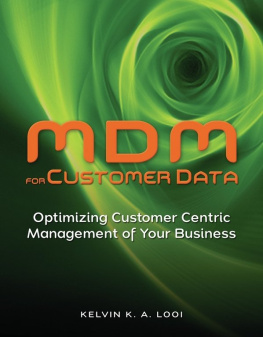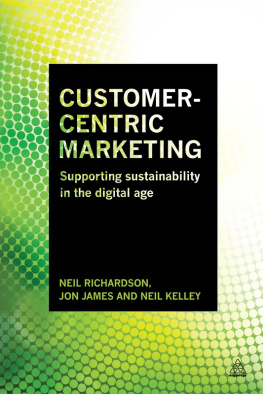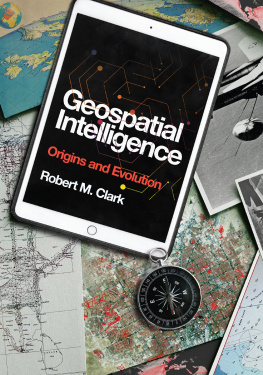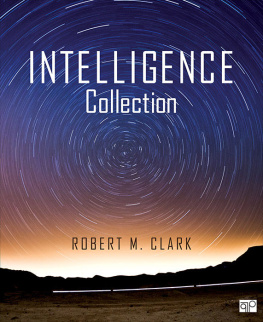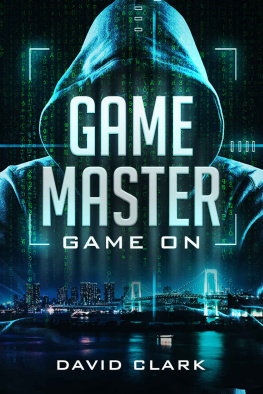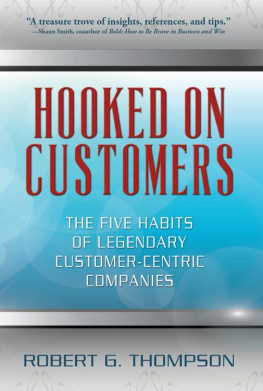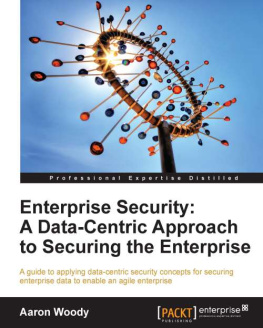Robert M Clark - Intelligence Analysis: A Target-Centric Approach
Here you can read online Robert M Clark - Intelligence Analysis: A Target-Centric Approach full text of the book (entire story) in english for free. Download pdf and epub, get meaning, cover and reviews about this ebook. year: 2012, publisher: CQ Press, genre: Politics. Description of the work, (preface) as well as reviews are available. Best literature library LitArk.com created for fans of good reading and offers a wide selection of genres:
Romance novel
Science fiction
Adventure
Detective
Science
History
Home and family
Prose
Art
Politics
Computer
Non-fiction
Religion
Business
Children
Humor
Choose a favorite category and find really read worthwhile books. Enjoy immersion in the world of imagination, feel the emotions of the characters or learn something new for yourself, make an fascinating discovery.

- Book:Intelligence Analysis: A Target-Centric Approach
- Author:
- Publisher:CQ Press
- Genre:
- Year:2012
- Rating:3 / 5
- Favourites:Add to favourites
- Your mark:
- 60
- 1
- 2
- 3
- 4
- 5
Intelligence Analysis: A Target-Centric Approach: summary, description and annotation
We offer to read an annotation, description, summary or preface (depends on what the author of the book "Intelligence Analysis: A Target-Centric Approach" wrote himself). If you haven't found the necessary information about the book — write in the comments, we will try to find it.
Intelligence Analysis: A Target-Centric Approach — read online for free the complete book (whole text) full work
Below is the text of the book, divided by pages. System saving the place of the last page read, allows you to conveniently read the book "Intelligence Analysis: A Target-Centric Approach" online for free, without having to search again every time where you left off. Put a bookmark, and you can go to the page where you finished reading at any time.
Font size:
Interval:
Bookmark:
INTELLIGENCE
ANALYSIS
FOURTH EDITION
INTELLIGENCE
ANALYSIS
A TARGET-CENTRIC APPROACH
ROBERT M. CLARK
FOURTH EDITION


FOR INFORMATION:
CQ Press
An Imprint of SAGE Publications, Inc.
2455 Teller Road
Thousand Oaks, California 91320
E-mail:
SAGE Publications Ltd.
1 Olivers Yard
55 City Road
London EC1Y 1SP
United Kingdom
SAGE Publications India Pvt. Ltd.
B 1/I 1 Mohan Cooperative Industrial Area
Mathura Road, New Delhi 110 044
India
SAGE Publications Asia-Pacific Pte. Ltd.
3 Church Street
#10-04 Samsung Hub
Singapore 049483
Acquisitions Editor: Elise Frasier
Associate Editor: Nancy Loh
Production Editor: Eric Garner
Copy Editor: Michelle Ponce
Typesetter: C&M Digitals (P) Ltd.
Proofreader: Laura Webb
Indexer: Jean Casalegno
Cover Designer: Rose Storey
Marketing Manager: Jonathan Mason
Permissions Editor: Karen Ehrmann
Copyright 2013 by CQ Press, an Imprint of SAGE Publications, Inc. CQ Press is a registered trademark of Congressional Quarterly Inc.
All rights reserved. No part of this book may be reproduced or utilized in any form or by any means, electronic or mechanical, including photocopying, recording, or by any information storage and retrieval system, without permission in writing from the publisher.
Printed in the United States of America.
Library of Congress Cataloging-in-Publication Data
Clark, Robert M.
Intelligence analysis : a target-centric approach / Robert M. Clark. 4th ed.
p. cm.
Includes bibliographical references and index.
ISBN 978-1-4522-0612-7 (pbk. : alk. paper)
1. Intelligence serviceMethodology. I. Title.
| JF1525.I6C548 2013 | 327.12dc23 |
| 2012032725 |
This book is printed on acid-free paper.
12 13 14 15 16 10 9 8 7 6 5 4 3 2 1
T he first edition of this book was published in 2003, soon after the terrorist attack on U. S. soil of September 11, 2001, and the U. S. led invasion into Iraq, more commonly called the Iraq War, on March 20, 2003. Those two events focused the worlds attention on apparent failures of the U. S. intelligence community.
But as Professor Stephen Marrin has pointed out, in the case of the 9/11 attack, more important are the strategic policy failures that preceded the intelligence failures. I submit that both the 9/11 attack and the Weapons of Mass Destruction (WMD) debacle resulted primarily from failures in U.S. strategic policy, abetted by intelligence failures. The intelligence failures in both cases were collaborative rather than causative.
Nevertheless, the two events caused enough consternation within the United States to spawn bipartisan commissions of inquiry, resulting in the aforementioned 9/11 Commission report and the Iraqi WMD Commission report (published in March of 2005). These two documents have provided us with perhaps the most detailed assessments of intelligence failures ever written at the unclassified level. The reports have led directly to dramatic and controversial changes in the structure and function of the U.S. intelligence community.
If an intelligence community is interested in real improvement, it should begin with a focus on process, not on structure and function. An effective intelligence process then will engender effective structure and function. A major contribution of both the 9/11 and the Iraqi WMD Commissions was their focus on a failed process, specifically on that part of the process where intelligence analysts interact with their policy customers.
Thus, this book has two objectives:
- The first objective is to redefine the intelligence process to help make all parts of what is commonly referred to as the intelligence cycle run smoothly and effectively, with special emphasis on both the analyst-collector and the analyst-customer relationships.
- The second goal is to describe some methodologies that make for better predictive analysis.
The book therefore defines a better intelligence analysis process, one that appears to be emerging within the U.S. and other intelligence communities and puts specific analysis techniques in context, showing how they interrelate within that process.
An intelligence process should accomplish three basic tasks. First, it should make it easy for customers to ask questions. Second, it should use the existing base of intelligence information to provide immediate responses to the customer. Third, it should manage the expeditious creation of new information to answer remaining questions. To do these things intelligence must be collaborative and predictive: collaborative to engage all participants while making it easy for customers to ask questions and get answers; predictive because intelligence customers above all else want to know what will happen next.
What I call a target-centric intelligence process helps analysts and customers accomplish these three tasks by bringing together all participants in the production of sound intelligence. Though intelligence communities are organized hierarchically, the target-centric process outlines a collaborative approach for intelligence collectors, analysts, and customers to operate cohesively against increasingly complex opponents. We cannot simply provide more intelligence to customers; they already have more information than they can process, and information overload encourages intelligence failures. The community must provide what is called actionable intelligencethat is relevant to customer needs, is accepted, and is used in forming policy and in conducting operations. Collaboration enables such intelligence. The convergence of computers and multimedia communications allows analysts and their customers to interact more closely as they move from traditional hierarchies to networksa process that had already begun to emerge before the restructuring of the U.S. intelligence community.
The second goal is to clarify and refine the analysis process by drawing on existing prediction methodologies. These include the analytic tools used in organizational planning and problem solving, science and engineering, law, and economics. In many cases, these are tools and techniques that have endured despite dramatic changes in information technology over the past 50 years. All can be useful in making intelligence predictions, even in seemingly unrelated fields. In fact, a number of unifying concepts can be drawn from these disciplines and applied when creating scenarios of the future, assessing forces, and monitoring indicators. The book highlights these concepts in boxes called analysis principles and treats them as fundamental principles of intelligence analysis. These boxes should make the book a valuable reference even as the world continues to change.
This book was written originally for the practicing intelligence analyst, though it intended to be of interest to all intelligence professionals, students, and customers of intelligence. Intelligence professionals can spend their entire careers on specialized topics such as behavioral analysis, and many books are devoted to topics covered only briefly here. This book, rather, is a general guide, with references to lead the reader to in-depth studies and reports on specific techniques. The book offers insights that intelligence customers and analysts alike need to become more proactive in the changing world of intelligence and to extract more useful intelligence.
Next pageFont size:
Interval:
Bookmark:
Similar books «Intelligence Analysis: A Target-Centric Approach»
Look at similar books to Intelligence Analysis: A Target-Centric Approach. We have selected literature similar in name and meaning in the hope of providing readers with more options to find new, interesting, not yet read works.
Discussion, reviews of the book Intelligence Analysis: A Target-Centric Approach and just readers' own opinions. Leave your comments, write what you think about the work, its meaning or the main characters. Specify what exactly you liked and what you didn't like, and why you think so.

